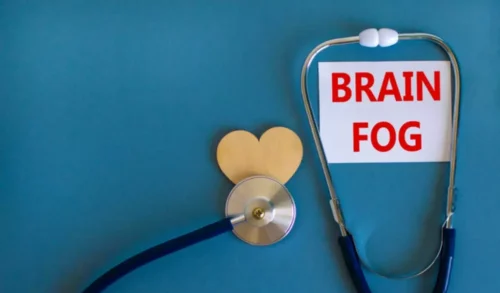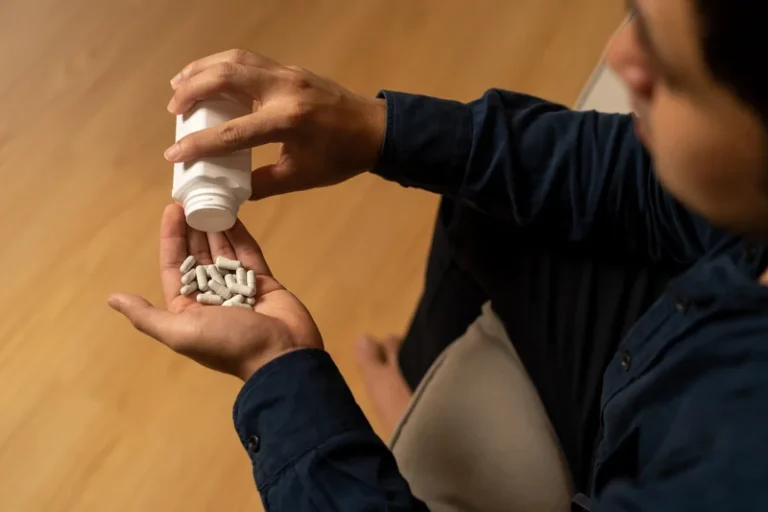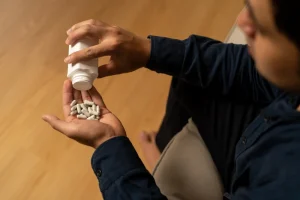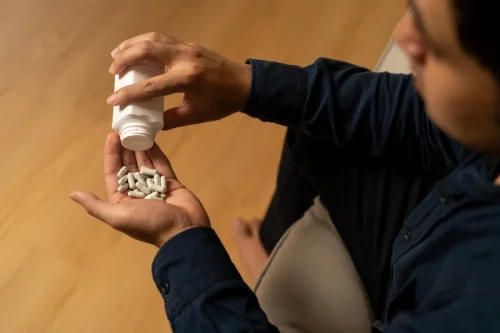
They will also be able to rule out other forms of dementia, such as Alzheimer’s or vascular dementia, with the aid of all the data acquired throughout the diagnostic process. Those whose daily alcohol consumption was three units or more during the preceding month showed losses in both gray and white matter in their brains, making their brains appear three and a half years older. For doctors out there, when you see patients who have late-onset alcoholism, which is defined as happening after the age of 40 or older, perhaps these people need a little more attention and an evaluation for a neurologic disorder. We’re not saying that this is happening for everyone who develops this, but it is possible that the drinking is the result of a medical condition that they don’t really have any control over. The damage to the brain then leads to symptoms that can include issues with a person’s gait, memory loss, hallucinations, and other issues. Even with treatment, some symptoms, such as gait changes, confabulation, or memory loss, may not improve.

Alcoholic Dementia: Causes, Symptoms, and Treatment

Experts recommend that screeners check anyone with memory loss for alcohol use. A person may consider joining support groups or attending counseling or therapy if alcohol use is impairing their quality of life in the short and long term. Lewy body dementia is another progressive type of dementia that causes an accumulation of proteins called Lewy bodies in various brain areas. These areas are responsible for movement, emotions, behavior, memory, and cognition. Excessive alcohol may compromise executive functions in people with dementia and can lead to memory, learning, problem-solving, and judgment problems.

Alcohol-related brain damage (ARBD): what is it and who gets it?
- Scientists from France and Canada found that taking benzodiazepines, also known as benzos, for just three to six months increased the risk of developing Alzheimer’s by 32 per cent.
- People who are diagnosed with ARBD are usually aged between about 40 and 50.
- However, it can occur earlier or later depending on the amount of alcohol a person consumes.
- You should discuss your intentions with your healthcare provider, who can work with you to help plan your next steps toward recovery.
- While the statistics can be intimidating, try to remember that they don’t determine your journey with ARD.
For instance, getting regular exercise, finding a hobby, staying socially active and managing chronic conditions all may help keep the brain sharp. Limiting alcohol consumption, eating a healthy diet and getting good sleep all helped mitigate what is Oxford House risk as well. Among the study’s findings, younger seniors who engaged in physical activity and mentally stimulating hobbies appeared to have a lower risk of cognitive decline.
Memory care in all states
- Prevalence rates of ARD in hospitals and clinics have been reported to account for 10% to 24% of all dementias subtypes (16, 20).
- Supporting a person with alcohol-related ‘dementia’ can be challenging for their carer, friends and family.
- A brief summary of assessment and investigations are highlighted in Table 1.
- Neuronal loss is also noted in the superior frontal association cortex, cerebellum and hypothalamus (2, 39).
- Additionally, stopping alcohol use is a key factor in preventing additional damage that causes worsening of alcoholic dementia.
However, women who have ARBD tend to get it at a younger age than men, and after fewer years of alcohol misuse. This is because women are at a greater risk of the damaging effects of alcohol. A lot of the brain damage that is caused by alcohol happens because it prevents the body from getting enough thiamine (vitamin B1). Regularly drinking too much alcohol damages blood vessels in a person’s brain and can lead to high blood pressure. Both increase their risk of having a stroke (when the brain does not get enough oxygen and is damaged).
Alcohol and dementia risk
- In this way, they can findout that something is connected, but they cannot establish what leads to what.
- This is because women are at a greater risk of the damaging effects of alcohol.
- They may also find it very difficult to stay motivated if they do stop drinking, because losing motivation is a symptom of dementia.
- People with alcohol-related ‘dementia’ tend to be younger and physically more active than most people who have other types of dementia.
- This occurs because alcohol damages peripheral nerves, harming their ability to transmit signals.
- Screening tests like the Michigan Alcohol Screening Test combined with neuropsychological tools such as MMSE and MoCA can help in early detection of these cases.
- A person may consider joining support groups or attending counseling or therapy if alcohol use is impairing their quality of life in the short and long term.
On the other hand, there is no rationale either, to recommend cutting down on alcohol consumption to reduce dementia risk if consumption is moderate (disregarding other risks of alcohol consumption). Dementia is a globally increasing health issue and since no cure is currently available, prevention is crucial. The consumption of alcohol is a controversially discussed risk factor for dementia. While many previously published epidemiological studies reported a risk reduction by light to moderate alcohol consumption, there is no persuasive model of an underlying biochemical mechanism. The purpose of this article is to review current models on alcohol neurotoxicity and dementia and to analyze and compare studies focusing on the epidemiological link between alcohol consumption and the risk of dementia.

Over 25% of American adults report at least one instance of heavy alcohol use each month, according to the National Institute on Alcohol Abuse and Alcoholism. Alcohol misuse can cause a variety of health problems, from high blood pressure to heart disease. The observational epidemiological studies underlying the reviews listed in Table 1 were limited because the majority of the studies were restricted does alcohol cause dementia to older populations (that is, late adulthood). A person who has ARBD won’t only have problems caused by damage to their brain.

